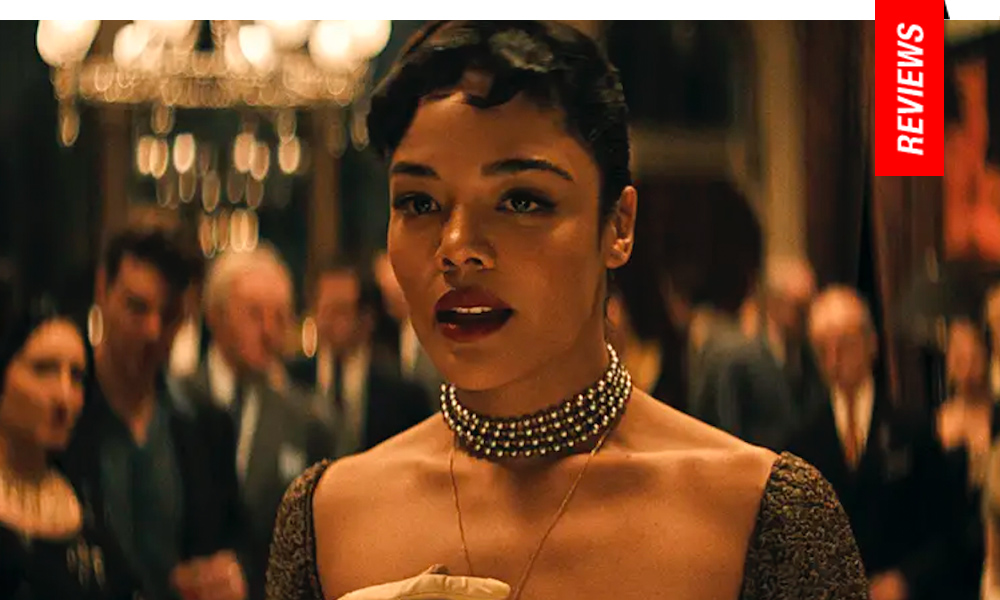Party Time: Nia DaCosta Throws A Forgettable Rager
Everybody wants Hedda Gabler (Tessa Thompson). The socialite has been known for her affairs with women, but takes the hand of George Tesman (Tom Bateman), largely because the dull academic bought the country estate she wanted. However, the purchase has left him on the brink of financial ruin, so Hedda decides to throw a party so he can pal around with the professors he hopes will sway his application for a permanent position at the university. But when Hedda finds out her old lover Eileen (Nina Hoss) is not only vying for the gig, but has a literally sexy new book about fetishes that could swing the vote her way, no one is safe from her manipulations to get what she wants.
Described by family friend Judge Roland Brack (Nicholas Pinnock) as “catastrophically bored,” that’s just when Hedda is at her most dangerous. As she sets her plans in motion, the party spirals further and further out of control to her benefit. No one is spared from Hedda’s machinations, not even her husband George, or Eileen’s new girlfriend and muse, the doe-eyed Thea Clifton (Imogen Poots). Almost like a game of Clue, there’s plenty of potential weapons available at Hedda’s disposable — a pond, a giant bonfire, her own acid tongue — but her most prized possessions are her antique guns. Chekov couldn’t have set it up any better.
Technically, the film leaves nothing as an afterthought. The production design by Cara Brower is impeccable, the costume design by Lindsay Pugh is beautiful, and the cinematography by Sean Bobbitt glows is all shimmering, golden hues (and he deploys a lovely if purposeless dolly shot of Hedda cruising across the ballroom floor). The score, by Oscar-winner Hildur Gudnadottir, floats by with airy whooshes and percussive drums and bells, giving Hedda the feel of a horror movie composed by Jon Brion.
However, the screenplay struggles to justify why any of this matters, or why anyone should give a whit about the problems of a bunch of decadent assholes. The film’s sexual and class themes are nothing more than frills, never going any deeper than the glittering surfaces of the film. Politically or psychologically, the film musters little as well. And while the performances are almost all solid — Hoss is the standout — Thompson (who toplined DaCosta’s 2018 indie debut Little Woods) is unfortunately the weakest link. The actress struggles with an over enunciated, overly sharpened British accent that sounds more like a cartoon than a lived-in character.
An audience’s mileage for Hedda will depend on how much they enjoy watching what is little more than a parlour game between the pampered upper classes. All knowing looks and bemused expressions, suicide attempts and drunken shags in a hedge maze are treated with equal, fleeting weight. Hedda lets us peer into the kind of moneyed world most of us will never see, and doesn’t have much in the way of observation, other than how unfulfilled their lives are. Perhaps the most we learn is that they’ll always find a way to bounce back, but the rest of us will be stuck watching this film.
Reviewed on September 8th at the 2025 Toronto International Film Festival (50th edition) – Special Presentations. 107 Mins.
★½/☆☆☆☆☆
